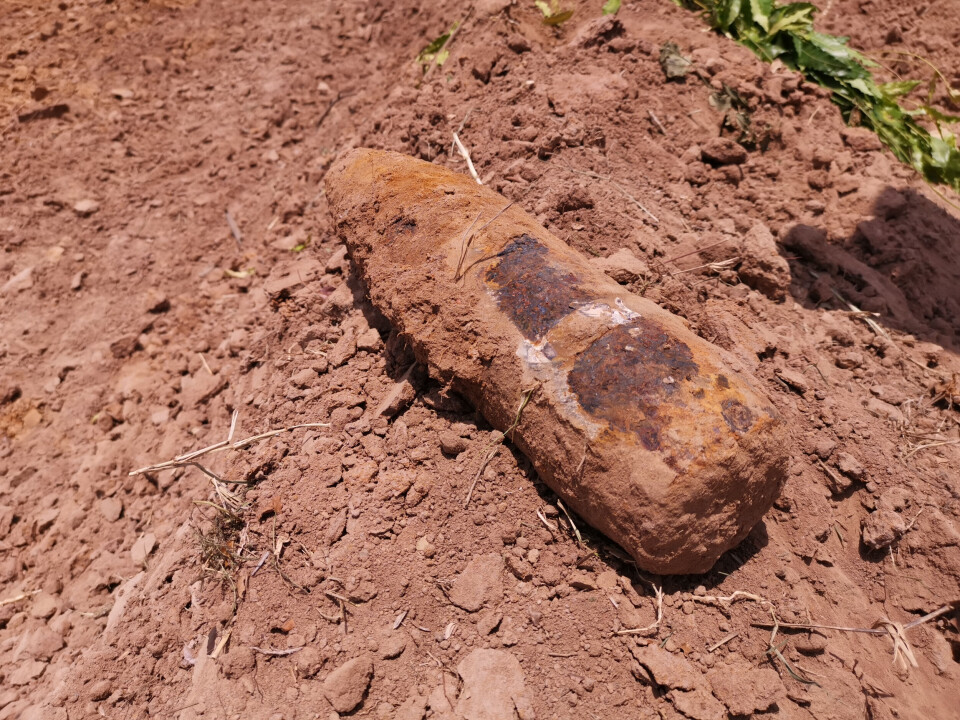-
Many Société Générale customers to be charged additional fees from April
There is some good news for international banking and instant transfers, however
-
Why gas prices in France are rising in April - and by how much
It comes after six consecutive monthly rises. Try these tips to reduce your bills
-
New notaire data suggests easing of Paris property crisis
Property experts have talked of ‘easing pressure’ and ‘breathing space’ after a four-year slump
French man drives to police with WWII shells in back of his car
Gendarmes have reminded people of the inherent dangers of handling munitions after the unorthodox handover

Authorities in Normandy have appealed for residents to exercise extreme caution – and some common sense – if they come across World War Two explosives, after a man drove to his local police station with two shells on the back seat of his car.
The man, from Saint-Quentin-sur-le-Homme (Manche), discovered the shells while doing agricultural work, according to Ouest France.
Rather than calling the police, he placed them in his car and drove them to the station in nearby Ducey-Les Chéris himself on Wednesday (November 2).
After seeking advice from bomb disposal experts, officers carefully removed the munitions from the vehicle and placed them in a container filled with sand until professionals arrived to deal with them.
Three more shells found on the same day
World War Two discoveries are not uncommon in Normandy, which saw heavy fighting and bombing in 1944.
Read more: French man finds bracelet of American WWII soldier in a field
On the same day, a farmer in Terre-et-Marais, near Carentan, dug up three shells while ploughing his field.
After calling police, the area was sealed off and bomb disposal experts called in to verify that the devices were, indeed, unexploded munitions.
"He warned us and he did the right thing," said the Manche gendarmerie on its Facebook page.
‘Do not touch’
By contrast, it said the man who handed in the weapons himself had taken “considerable risks”.
“Explosive devices are the responsibility of the prefecture’s civil protection service and Caen bomb disposal experts will intervene.
“If you discover a bomb, shell, grenade or any other munition, do not touch it!”
The gendarmerie advised informing the prefecture’s Service interministériel de défense et de protection civile (SIDPC) or simply dialling 17.
“We are used to protocol,” it said.
Travelling with weapons is forbidden
Lieutenant-Colonel Yannick Le Sausse, second in command of the Manche Gendarmerie, told FranceInfo that police would be understanding.
“We know that there are things left in attics. Sometimes people find weapons at their grandfather's house.
“You have to call us, we will find solutions.
“Obviously, we strongly advise against travelling with these kinds of devices. First of all, because it is forbidden – you're not allowed to hold and transport weapons and ammunition - but mainly because it can be dangerous.”
Related articles
213kg WWII British bomb defused safely in Normandy town
Last surviving French resistance fighter deported in WW2 dies aged 96
Retired French soldier hunts down war grave thieves and Nazi relics
























